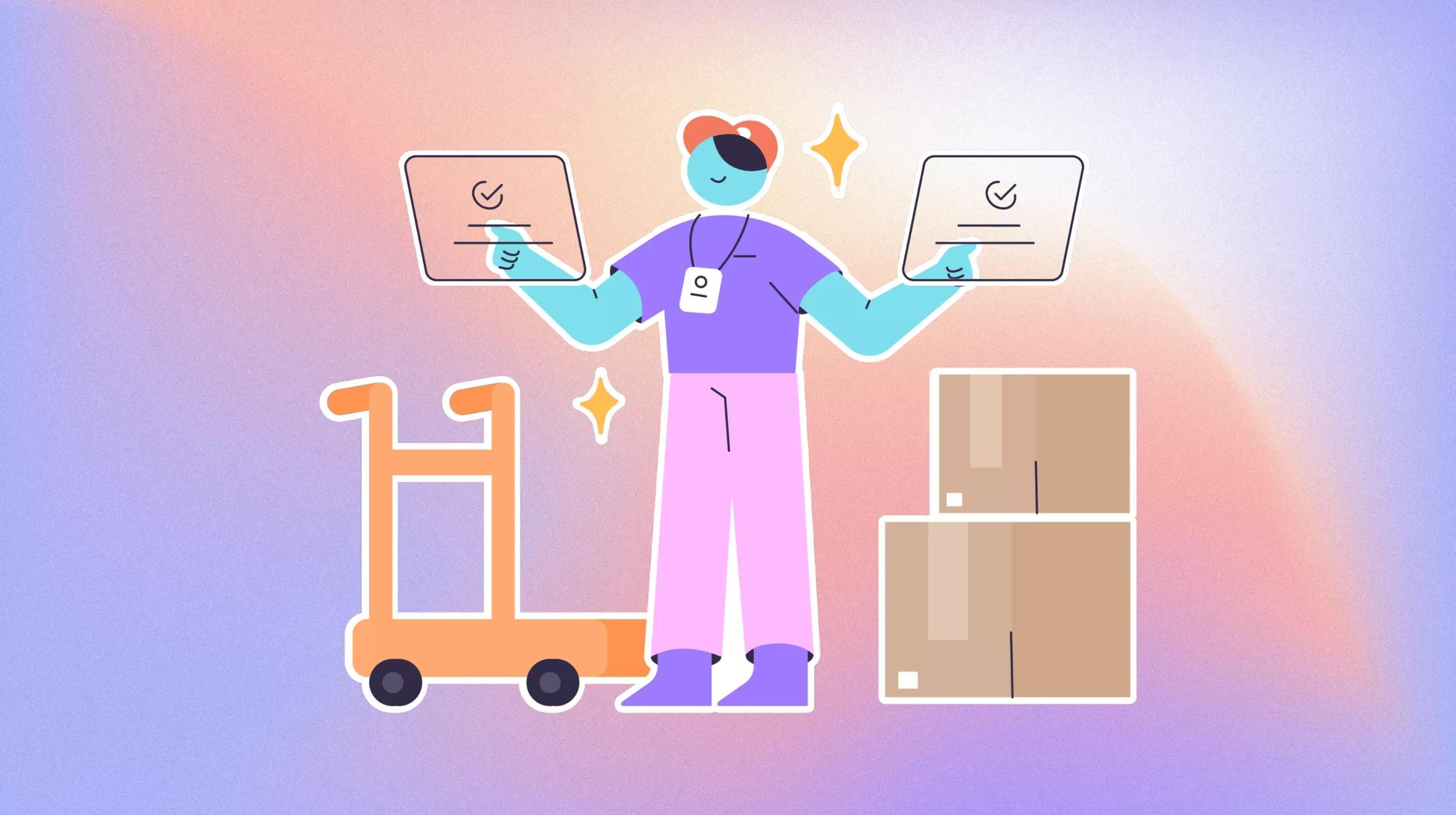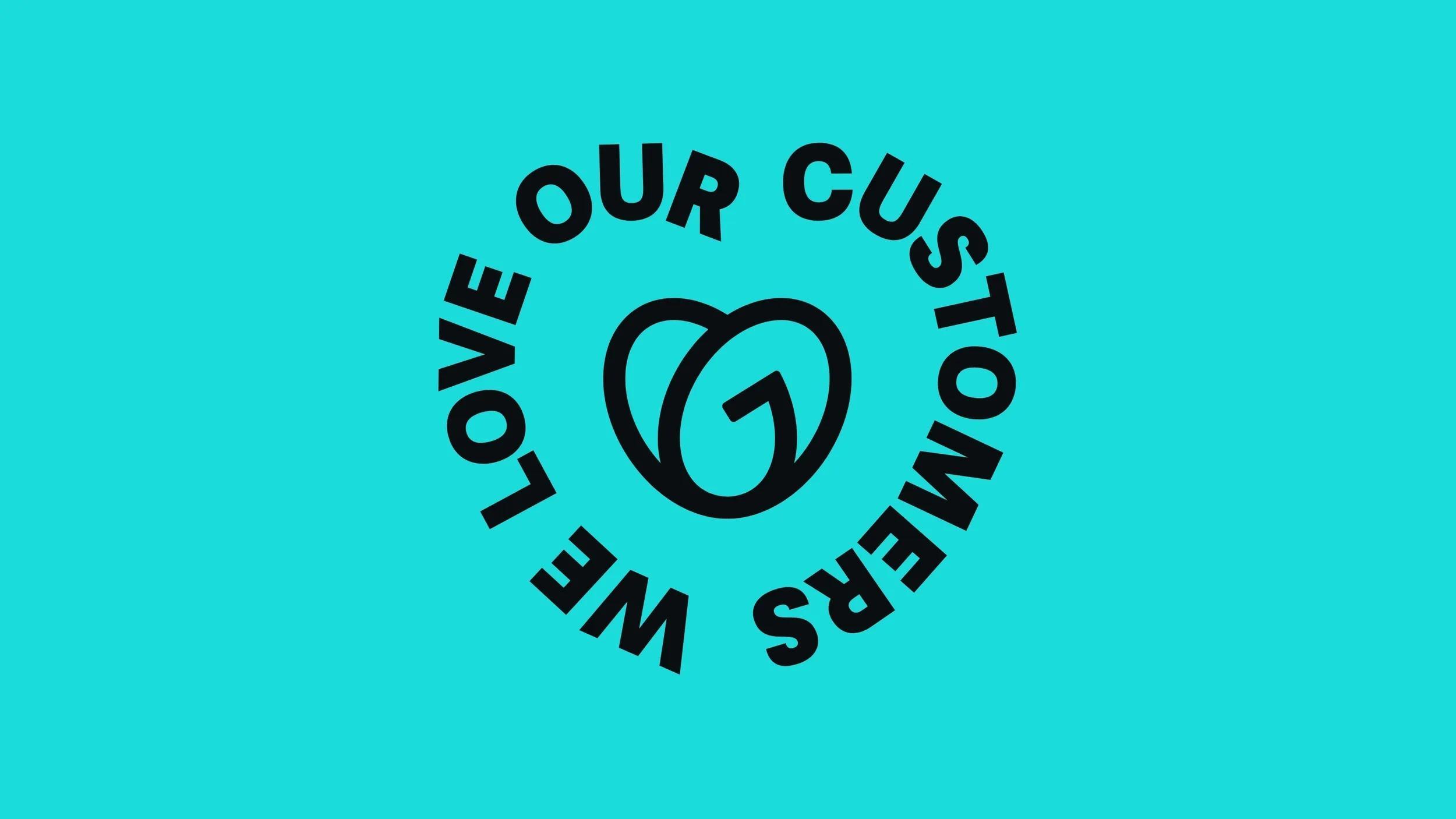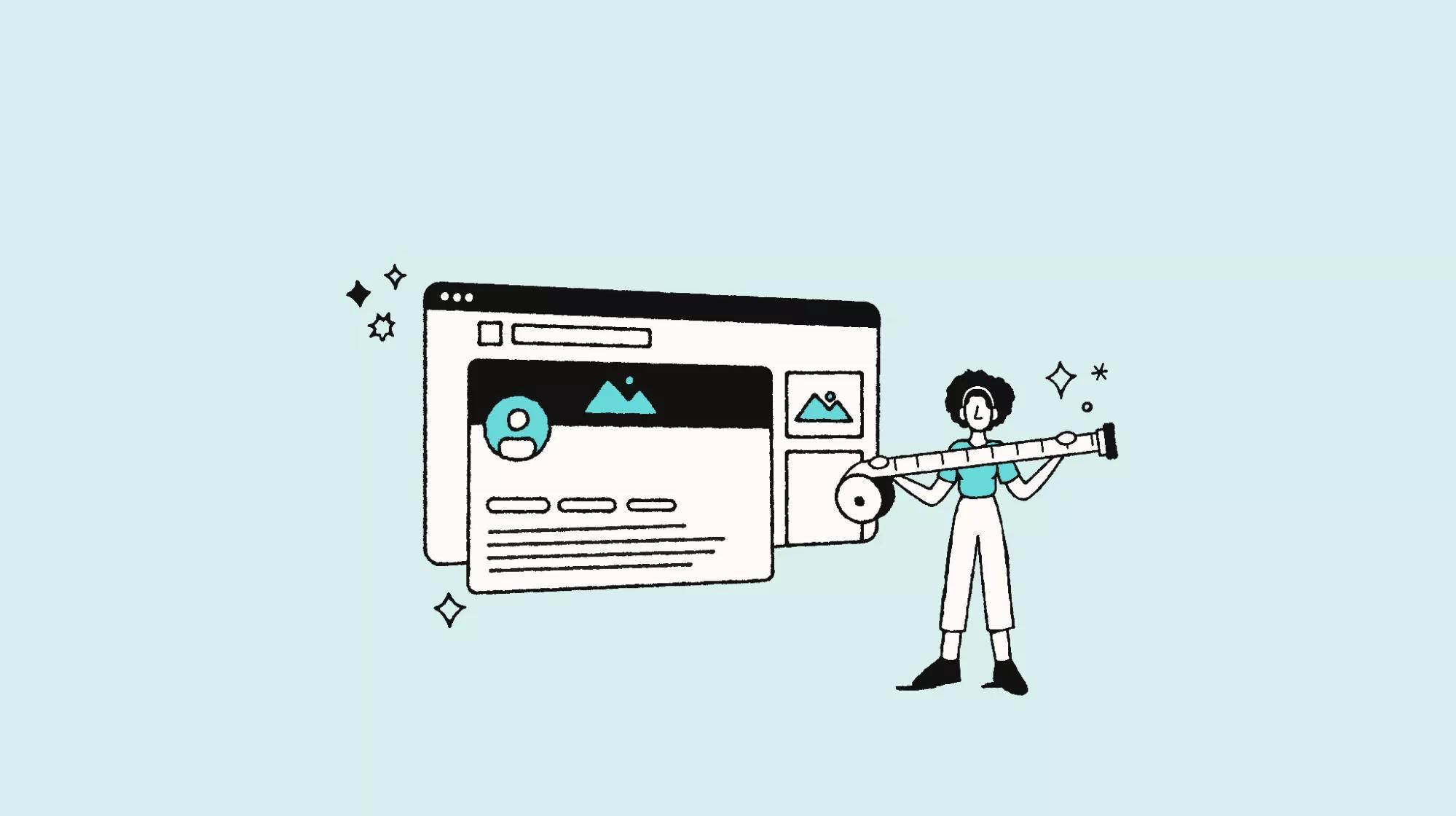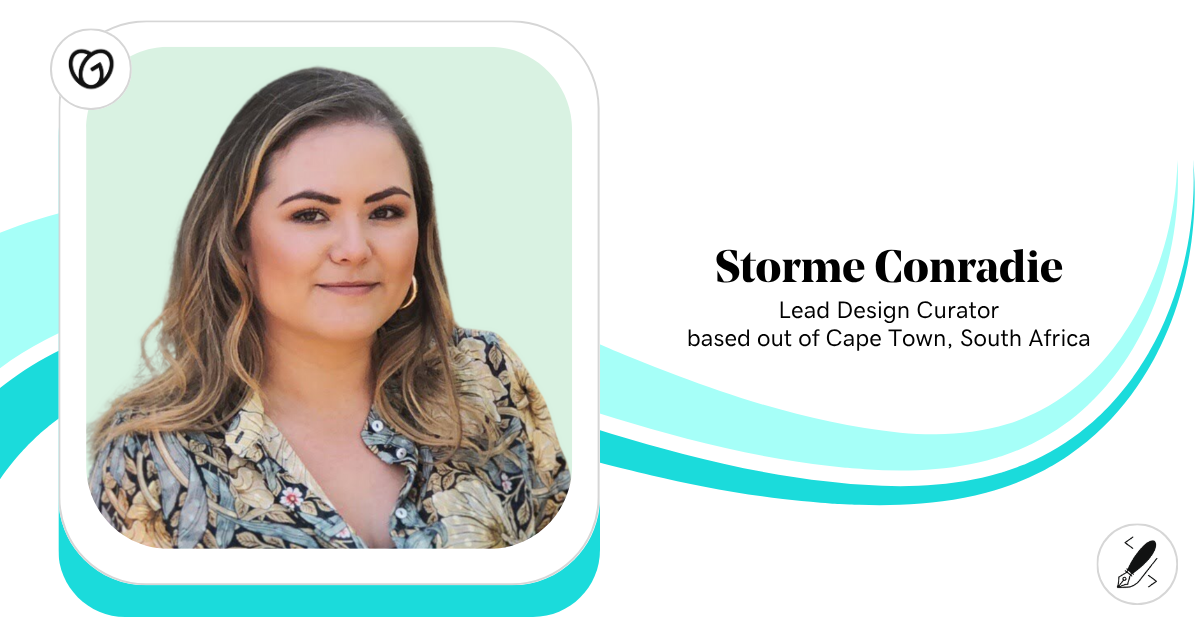Curious about wholesale distribution? Wonder if direct-to-consumer (DTC) would be the better route for your business?
Here’s a scenario. You have one or more consumer products to sell. You know your target customer market, i.e., who you want to sell it to.
The question is, how will you do that? You have two basic options: direct and indirect distribution.
Direct distribution means you sell directly to the target consumer group. Sales like these are also called direct-to-consumer (DTC) and business-to-consumer (B2C).
In contrast, indirect distribution means you sell to an intermediary (e.g., a retailer). This is a form of business-to-business (B2B), or wholesale distribution. The intermediary won’t buy small quantities — it will be in bulk. Eventually, the product makes its way to the end user, with a markup, of course.
The relationship between DTC and wholesale is complex.
- A new company starting out would likely choose either DTC or wholesale. Each has its own advantages and obstacles.
- As a company grows, it often can and should run both DTC and wholesale channels.
- Selling DTC and wholesale simultaneously can lead to conflict between them. But this can be managed.
- More and more, buyers are shopping omnichannel. Firms that sell omnichannel can benefit from this preference.
So, how do you as a small business owner choose which channel to focus on for now? Let’s find out.
Disclaimer: This content should not be construed as legal or financial advice. Always consult an attorney or financial advisor regarding your specific legal or financial situation. All trademark rights belong to their respective owners. Third-party trademarks are used here for demonstrative and educational purposes only, use does not represent affiliation or endorsement.
How do wholesale distribution and DTC compare to each other?
Any method of selling to consumers is considered “direct-to-consumer.” That includes:
- Brick-and-mortar stores
- Ecommerce stores
- Trade events and shows
- Physical mail orders
In this article, we’ll focus on selling your goods through physical and online stores. Distributors and retailers (sometimes called dealers) are intermediaries to which you might be able to sell on a wholesale basis. For this particular guide, we’ll focus on retailers.
Operational differences between wholesale distribution and DTC
Major aspects of your business will change depending on whether you’re looking at wholesale or DTC channels. The list boils down to these items:
- Number of orders
- Quantities of product per order
- Total order value
- Type of marketing, sales, and customer support
- Operational cost structure
Let’s unpack the list.
We’ll start with an observation: Wholesalers tend to require detailed applications with business identification, as well as minimum order guidelines. They will not usually sell to the public.
Why?
Simple. It’s not worth it for them.
Wholesalers generate the most revenue when they sell in bulk and customize deals to particular buyers (often retailers). Letting anyone come and buy would mean selling in small quantities.
Amount of orders, units, and order value
Wholesalers handle fewer orders each with a larger number of units. Total order value is higher. DTC, on the other hand, involves higher volumes of orders each with fewer units resulting in smaller per-order revenue.
Changes to marketing, sales, and customer support
Wholesale distributors focus on relationships. Thus, sales take the lead over marketing.
If you’re selling wholesale, someone at your company should become the point of contact with the retailer's relevant category person.
Frequently, in B2B sales cycles, there are multiple stakeholders. You may end up having conversations with a variety of people, though you’ll have far fewer interactions than in B2C.
DTC involves more bureaucracy. That is, you need an excellent system for handling:
- Inventory management
- Supply chain management
- Orders
- Payments
- Returns
- Customer support inquiries
Operational cost structure
DTC means taking on the burden of getting customers to buy the product. That’s marketing and sales at a greater scale, quite different from the high-touch, high-quality relationship focus we discussed earlier.
As you scale, your need for technology increases. You may find yourself looking for efficient software solutions to streamline your business operations.
Usually, in DTC a firm has to handle warehouse management and shipping too, which is called fulfillment. But there are retailers who offer order fulfillment services even to DTC brands. (More on that later.)
The after-purchase customer experience function will need to be much stronger.
All of these costs can add up.
Will DTC or wholesale distribution be more profitable for your business?
With an overview of these two channels in mind, let’s zero in on the key question for you: Given your current resources of time and capital, which channel is better for you to focus on right now?
- Is DTC more profitable than wholesale distribution? You may have heard that cutting out the middleman boosts profits.
- Alternatively, is DTC more expensive than wholesale? You may have read that online customer acquisition costs have skyrocketed in the past decade.
There’s a broader context to these recurrent questions.
- In recent years, we have seen brands that normally sell wholesale to retailers go heavily into DTC (e.g., Nike). This was especially true during the pandemic.
- Further back in time, it became clear that some brands could enter DTC first and gain initial success (e.g., Dollar Shave Club).
Let’s dig into the details of each channel’s pros and cons. Then, before we conclude, we’ll talk about how to apply these ideas to your particular situation.
Pros and cons: Wholesale distribution vs. DTC
Now that we’ve covered some of the processes involved with both wholesale and DTC, let’s examine some of each's benefits and drawbacks.
Wholesale distribution
One major feature of the wholesale distribution industry is middlemen. Middlemen have an important role in helping people buy the products they want and need. However, that value is often downplayed or outright ignored.
In the case of retailers, they help your business with:
- Getting your product in front of the right customers
- Processing orders and payments
- Making sure customers get their products
- Handling returns and doing customer support
Each of these activities can be a real burden. There are good reasons why DTC brands have rushed to wholesale.
Consider returns. On a trial period the retailer may take your goods on “consignment,” allocating the risk of un-purchased goods to you. But after that retailers typically shoulder the risk themselves. Meaning, they have to resell for a lower price or destroy these goods. Returned items are rarely resold in the same store for the same price.
Return policies and management is not a fun aspect of DTC.
To illustrate the value of retailers to your business, let’s look at three different marketplaces:
- Walmart
- Costco
- Amazon
Walmart
Walmart is a pure retailer. Small businesses often buy items from Walmart because of the cost savings. But Walmart’s “floor” unit quantity is almost always one or a few, making it not a wholesaler because the price savings are not based on volume.
Walmart runs physical storefronts and online commerce. Originally, it started out in brick-and-mortar but moved into digital shopping and has been quite successful.
Would selling your product at Walmart stores and on the website be helpful for your business? Assuming you’re already in the wholesale channel or know wholesale is the right way to go, the question is about brand fit.
Ask: Are your target customers shopping at Walmart? Potentially, since Walmart gets over 250 million visits worldwide a week.
So, using Walmart as an example, if there’s a brand fit, would this intermediary just be taking a cut of your profits? No.
They’d be a net revenue gain for you. Because the biggest advantage to selling wholesale to retailers is access to a big pool of good-fit customers. With smaller operational costs than DTC.
Related: How to sell on Walmart Marketplace
Costco
Contrary to popular belief, Costco is not a wholesaler. It is a “wholesale retailer.” That means it primarily sells to consumers, often in larger volumes than a typical retailer but far fewer than a true wholesaler. Quantities range from individual items to cases and pallets, but rarely multiple pallets and not truckloads.
Famously, Costco has Kirkland Signature. This is called “private label.” Here, a retailer slaps their brand on a product that another provider created.
If you want to sell goods without branding them, wholesale is the right choice.
Ask: Is the difficulty of building brand value directly to consumers worth it to you? Alternatively, you can sell branded products at one retailer and functionally the same item as a private label at another store.
Key to private label success is understanding the fit between the retailer’s brand, your product, and the target customer. You must prove the quality of your product to the retailer.
Amazon
Amazon, unlike Costco and Walmart, is primarily an ecommerce retailer. And it is the giant of that space as you know. In some ways it's hard to call Amazon a middleman because sellers are able to “stock” the “shelves” essentially on their own.
Amazon is a great example for us to talk about in our wholesale versus DTC discussion. It’s easier to start selling on Amazon than other major retailers.
In fact, one way to go DTC is to cut out the obstacles of storage, shipping and order fulfillment more broadly by using a dropshipping strategy. You can also buy wholesale and resell on Amazon.
But any retailer you work with will take a cut in one form or another. Ask yourself: Is the retailer’s cut still worth it for you in light of the increase in sales and, on the other hand, the increased difficulty of DTC?
Related: Beginner’s guide to Amazon
Direct-to-consumer (DTC)
Over a decade ago, firms like Dollar Shave Club made a big splash going DTC. You may have watched some of the advertising. These entrants saw promising revenue gains and attracted a lot of attention from investors and large companies.
DTC, in this context, means online sales. Ecommerce was newer back then, and we were all less familiar with its workings, including paid ads.
As more and more entrants came in, the cost of running ads went up and up until even first-to-market firms strained under the cost pressures. Like Dollar Shave Club.
Significant entry and rising cost pressures have caused some to proclaim the end of DTC ecommerce.
But that, of course, is not true. Interest in DTC ebbs and wanes with time, but there is always opportunity online for motivated and skillful entrepreneurs. (That is where you come in!)
The pandemic, for example, caused a surge in ecommerce sales and led DTC to become more popular. Some of that interest has declined, but the lesson has stuck: Online sales remain a powerful force for both new and established brands.
But the pandemic is a one-off kind of event. Recent leaps forward in ecommerce automation have helped DTC re-emerge as well.
Ultimately many brands go to DTC for the significant advantages that it offers. Primarily:
- Control over how the product is sold and at what price (no middleman).
- Direct information on customer demand (what products sell vs. do not sell)
If you go into wholesale, your retail partner has ultimate control over:
- Which specific products they show
- Base pricing and discounts
- Product packaging
- Promotional structure and materials
- Shelf and store location for the product
You can make suggestions, but ultimately, the retailer decides. It’s their store.
But it’s also your brand. (Unless you’re selling your goods as a private label.) You have an interest in your brand identity, translating to your brand’s reputation with customers.
Part of the difficulty with this situation is you may lose valuable information about your customers.
- The retailer may not tell you everything you want to know, or present the information in a timely or the most accessible way.
- The retailer may not collect all the information you want.
Data is key in this era, and you can collect it successfully from:
- SMS
- Social media
- Your website
The more direct interactions you have with customers, the better information you can obtain. DTC makes better information gathering possible.
In sum, online DTC is not a fad.
That’s not to say that brick-and-mortar shopping is done. Far from it. Physical storefronts are not going away.
People still love shopping in brick-and-mortar stores. We saw it in our discussion of Walmart and Costco, and we can see it in our own buying behaviors.
- Stores are nearby and easy to use. Websites and apps are often not user-friendly.
- It’s easy to understand a product you can hold in your hand. Online presentations, especially 2d photos and product descriptions, sometimes leave us needing more knowledge.
- You can ask associates questions in stores, and while chatbots have improved dramatically, they’re not all there yet.
It isn’t just customer interest driving the value of partnering with physical store retailers. You can partner with some retailers to cover order fulfillment. Some stores will hold and ship out orders that customers make through you (e.g., your website). In fact, some retailers offer online order pickup areas for branded goods.
Why do this for you? Retailers often already have order fulfillment capacity, which is the storage and logistical tools you need.
Regarding our discussion about customer acquisition costs in online DTC, you may want more capital. Investor presentations, then, are key. Already having success as a wholesaler selling to retailers may help you impress angel investors and venture capital firms.
Should your business focus on DTC or wholesale at this time?
It is true that as a wholesaler, you have two brand partnerships: one with the retailer and one with the consumer. Whereas in DTC your relationship is just with the consumer. But in the end your brand value to consumers is what drives your brand value to retailers. So in both situations understanding the consumer better is critical.
The question is, do you lose understanding by putting someone in between you and the consumer? If your DTC channel is already running hot, it may not be an issue. Even if your DTC sales aren’t strong right now, you may have enough anecdotes and data from other customer interactions through content marketing on social media.
You also have to become an expert in how to get your product sold to consumers. The kind of expertise you need will depend on a number of things, including:
- What’s your industry?
- What’s your product?
- Who are your customers?
But generally speaking, in DTC ecommerce, you have to become an expert in marketing. That means both organic and paid tools as distribution channels. That may mean search engine optimization (SEO), pay-per-click (PPC), and similar features of whichever platform you need to reach customers on, including Facebook, Instagram, Twitter, and more.
For both DTC brick-and-mortar and wholesaling to retailers, you have to become an expert in shelf space, package design, promotions, and other aspects of selling. Otherwise, you risk losing out on potential business growth.
In either situation you are aiming for personalized customer experiences, where the end customer feels that using your product is a part of their actual life in a positive and coherent way.
Getting where you need to go depends on where you’re at.
- What’s your current expertise in?
- Which learning curve looks most beatable to you?
Once you are comfortable in one channel, you can build into the other. Omnichannel businesses can benefit from:
- Greater net sales and revenue
- Multiple perspectives on customers and the market
- Broader brand presence and deepening brand value with omnichannel shoppers
However, omnichannel businesses run the risk of cannibalization, which involves shifting sales from one channel to the other.
- This causes confusion and waste, at minimum.
- Moreover, you may irritate your retail partners if retail sales go to DTC.
Focus on the best fit for your business right now
Choosing to focus more on DTC or wholesale isn’t permanent. It’s about what’s best for you and your business for a certain time period.
If you’re starting out, you’ll likely need to focus on one channel over another. DTC and wholesale each pose specific difficulties and opportunities. In fact, the difference between brick-and-mortar DTC and ecommerce DTC is big on its own as we discussed.
But in the medium to long term, it isn’t all one or the other. DTC and wholesale channels complement each other, when the risk of cannibalization is managed properly.
Remember, going DTC means you’re taking on burdens that intermediaries usually take on. They aren’t negligible – the markup makes sense.
Specifically, you’ll need to make sure these aspects of your business are on point.
- Marketing and customer support
- Payment and order processing
- Product storage
- Shipping and logistics
Alternatively, you can have another party, including a retailer, handle some of these functions.
Tips for success
Be thoughtful about the retailers with whom you partner as a small business.
- Certain retailers emphasize discounts far more than others and may undermine certain brands.
- Smaller retail outfits may offer more flexible terms than a take-it-or-leave-it established chain.
If you partner with smaller retailers, make it easy for them to know you are legitimate. Wholesale supplier scams are not uncommon.
Speaking of legal issues, there may be laws that apply differently to retail than wholesale (e.g., cannabis). Be aware of industry-specific regulations that should change your business calculus.
If you go wholesale, make it easy for people on your website to find a retail location.
If your business becomes omnichannel, to avoid cannibalization of sales and irritating retail partners:
- Coordinate with retail partners on promotion schedules
- Make certain products or product packages exclusive to one channel
FAQ
What is the difference between wholesale and DTC?
Wholesale and DTC are two different ways that businesses sell products. Wholesale means selling large quantities of products to other businesses, like stores, which then sell them to customers. Think of it like a big warehouse selling items in bulk to a grocery store.
DTC, or Direct-to-Consumer, means selling products straight to the customers who will use them, without any middleman. This is like buying a pair of shoes directly from the shoe brand's website. So, wholesale involves selling to other businesses, while DTC involves selling directly to customers.
What is the difference between wholesale and direct retail?
The main difference between wholesale and direct retail is who sells the product and to whom. In wholesale, a business sells large quantities of products to other businesses, like stores, who then sell those products to customers. In direct retail, the business sells its products straight to its customers. This can be done through a store or online.
Is it better to sell wholesale or retail?
Deciding whether to sell wholesale or retail depends on your business goals. Selling wholesale means you sell large quantities of products to other businesses, like stores, who then sell to customers. It's good for reaching more people quickly but usually has lower profit margins per item. Selling retail means you sell directly to customers, either online or in a physical store. This can give you higher profits per item and more control over your brand, but it might take more work to reach a lot of customers. Think about what fits your business best!
What does DTC mean in shopping?
DTC stands for "direct-to-consumer." It means that a brand or company sells its products straight to customers without using any middlemen, like stores or wholesalers. This often happens through online shopping websites or brand-specific stores.






